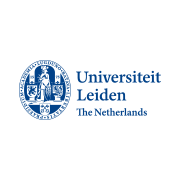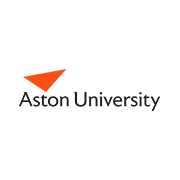Strong innovation ecosystems and thriving places
March 14 2022
This blog was first published on Wonkhe on the 16th Feb 2022 and is republished here with permission.
Universities can play an important part in levelling up, but not by themselves. Hamish McAlpine looks at the central role of knowledge exchange.
Successful regional innovation ecosystems create a virtuous circle, both of innovation and successful economic outcomes.
Innovation creates high-quality jobs, which in turn attracts more investment. This allows regeneration – both physical and cultural, making the region a more desirable place to live, making it more attractive to people with the right skills and talent, but also giving local people more opportunities. Spin-out companies from the University of Oxford, for example, contribute over £770m and 14,000 jobs to the region.
Having spent the best part of a decade immersed in university knowledge exchange and commercialisation (KEC) – including creating England’s first Knowledge Exchange Framework (KEF) and now supporting multiple university KEC projects at Oxentia – I need no convincing of the vital role universities play in their places. The KEF narratives abound with these impressive contributions to local growth and regeneration.
This role is also clear in the long-awaited UK Government’s Levelling Up white paper. Of the fifty or so references to universities in the white paper, the majority are in the context of two main themes: skills and contributions to regional innovation ecosystems, often driven by research strengths. The white paper identifies 20 such “sectoral clusters and strengths”, with universities and catapult centres featuring prominently in many of them:
“The UK’s universities and HE institutes, as well as institutions such as innovation catapults and knowledge transfer networks, help companies develop and commercialise cutting-edge products and services, boosting jobs, productivity, incomes and international competitiveness”
Ask not what levelling-up can do for your university…
Matthew Guest recently asked whether universities can ‘own’ the levelling-up agenda. He thinks they are up to the challenge, and I agree. But they’re not going to do it on their own, and their measures of success should not be how much money flows to them, or how many shiny new buildings they create.
I’ve always felt that the Venn diagram of civic activity (as defined by the Civic University Network) and knowledge exchange activity (including innovation and commercialisation) has significant overlaps. Not everything civic is KE, but a lot of it is, and there are often a very similar set of motivations and goals. Even closer join-up between the broader civic agenda and universities’ roles in regional innovation ecosystems would help counter the danger of such ecosystems becoming bubbles, where the benefits are not felt by all in the wider region.
For universities to really deliver on levelling-up, it’s important to take a broad view of what innovation is, being careful not to assume a purely STEM focus. The UK is home to world-leading R&D in, for example, life sciences and materials, but also in the social sciences, arts and humanities. Whether you’re talking about new technologies or wider societal challenges (such as net zero), they always have a human element – in their adoption, or in what behaviours (good and bad) they might drive. Through Oxentia’s programme management of the Aspect project, we have seen first-hand the benefits of social sciences, arts and humanities being front and centre when it comes to innovation.
And it is important for regional ecosystem development to be informed by a deep understanding of the region and the challenges faced by its businesses, public sector services, and communities, recognising that those stakeholders are often very well placed to identify opportunities and new ideas.
While the UK may have many reasonably well-developed regional innovation ecosystems, we can still learn from elsewhere, especially when it comes to inclusivity. From entrepreneurship training programmes in Brazil, to accelerator programmes in Colombia and female leadership empowerment training in Oman, it is clear that everyone, given the right support, can contribute to innovation.
The same is undoubtedly true in the UK too – from Falmouth University’s Launchpad supporting innovative Cornish firms, to the thousands of SMEs supported by the University of Lancaster, Norwich University of the Arts leveraging their networks to contribute to the creative and cultural life of the city, or UCL East considering community access and local opportunities into the design of its new space in areas of high deprivation in London. All of these things are not driven solely by the needs or wants of the university, but a proper understanding of the needs of the businesses and communities they serve, combined with an honest belief that inclusive and diverse innovation ecosystems are stronger and will better serve the needs of the regions they are in.
The KEtchup of catch-up
Over the last few decades, we have moved from linear models of “technology transfer” (as valuable as that is in some circumstances) to a more sophisticated view of knowledge exchange and commercialisation as genuine exchange, often co-produced and involving multiple disciplines and stakeholders.
Previously called the “third mission” of universities. I’ve long argued that KEC is better thought of as an integral part of both teaching and research, which enhances them both. This is exemplified by the role of university KEC activities in their regional ecosystems, which often brings together all parts of the university – students, researchers and professional services staff (from technicians to estates and procurement staff) to deliver results.
The Prime Minister may have been derided for talking about the “ketchup of catch-up”, but perhaps the important role universities play in developing inclusive regional innovation ecosystems through their knowledge exchange practice might be the magic sauce of levelling up after all.
Since 2004, Oxentia has supported Higher Education Institutions all over the world to develop and enhance their knowledge exchange and commercialisation (KEC) offering, including via:
- KEC strategy and framework development
- IP and licencing support
- Creating and accelerating new spin-outs
- Landscaping and ecosystem reviews
- Delivering ATTP accredited training
Get in touch with Dr Alexandra Bush or Dr Hamish McAlpine to discuss how Oxentia can help you realise your ambitions.




























